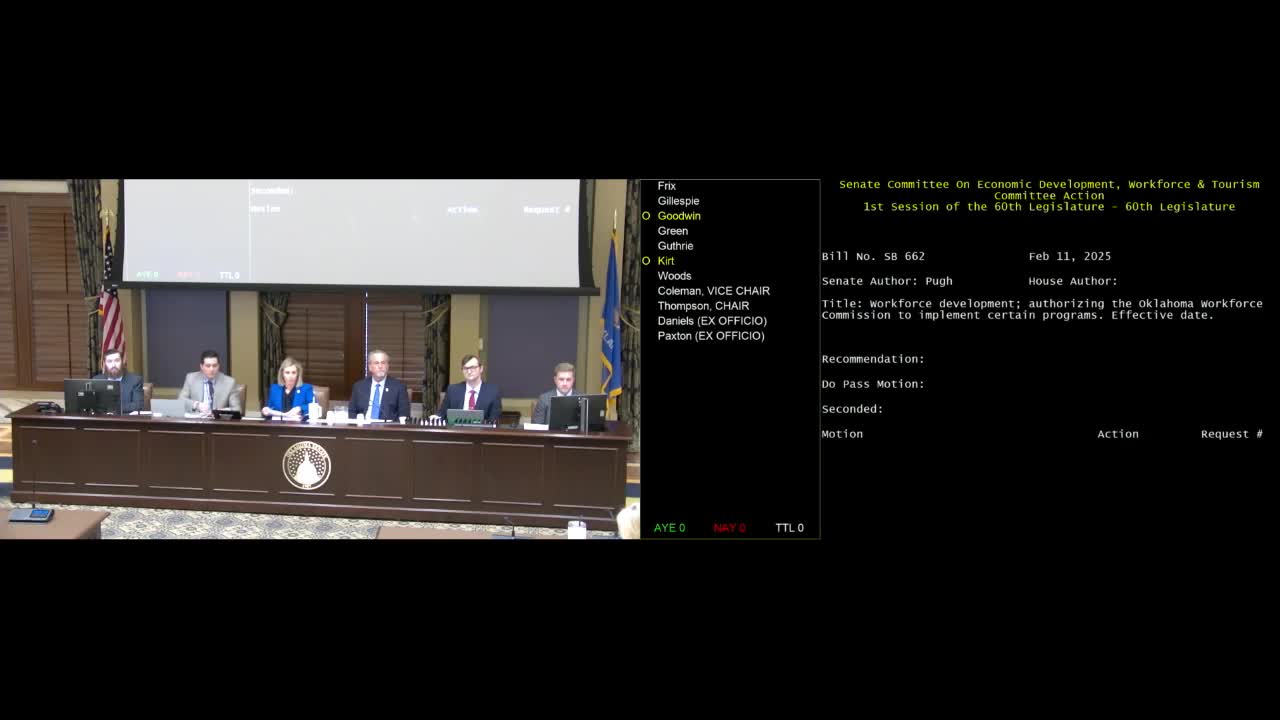Article not found
This article is no longer available. But don't worry—we've gathered other articles that discuss the same topic.
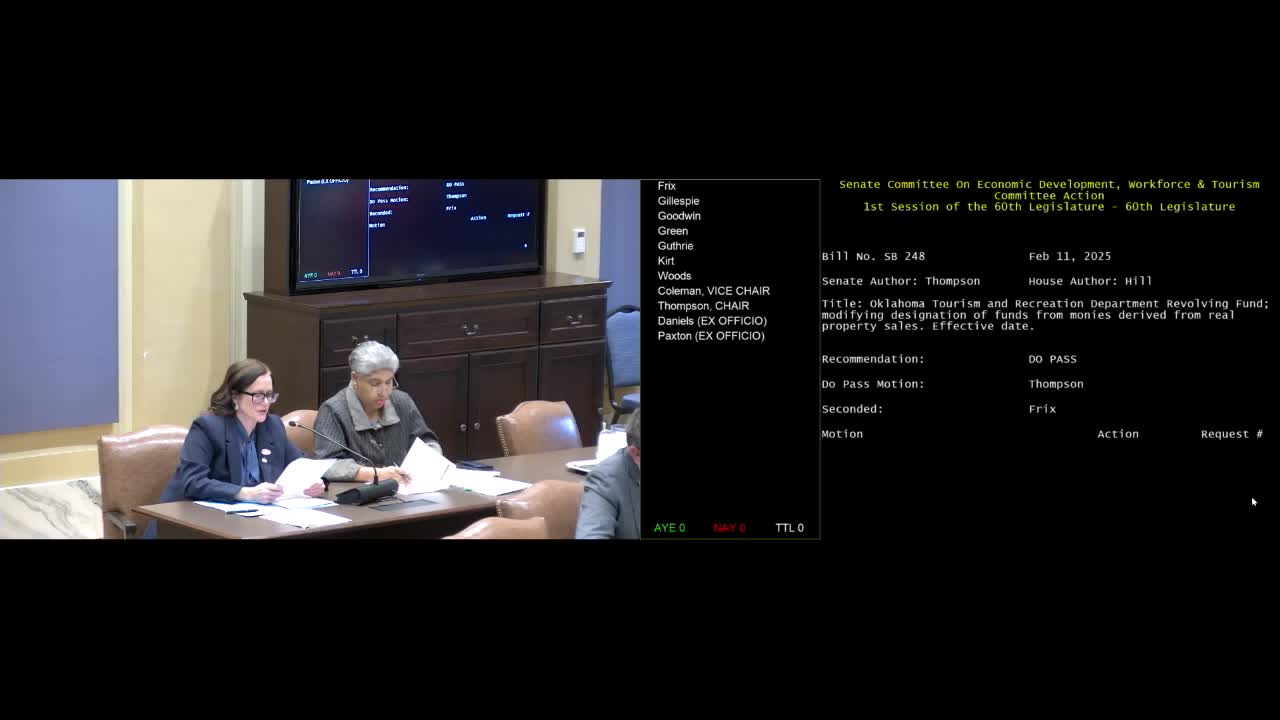
Committee approves directing proceeds from property sales to park maintenance and capital projects
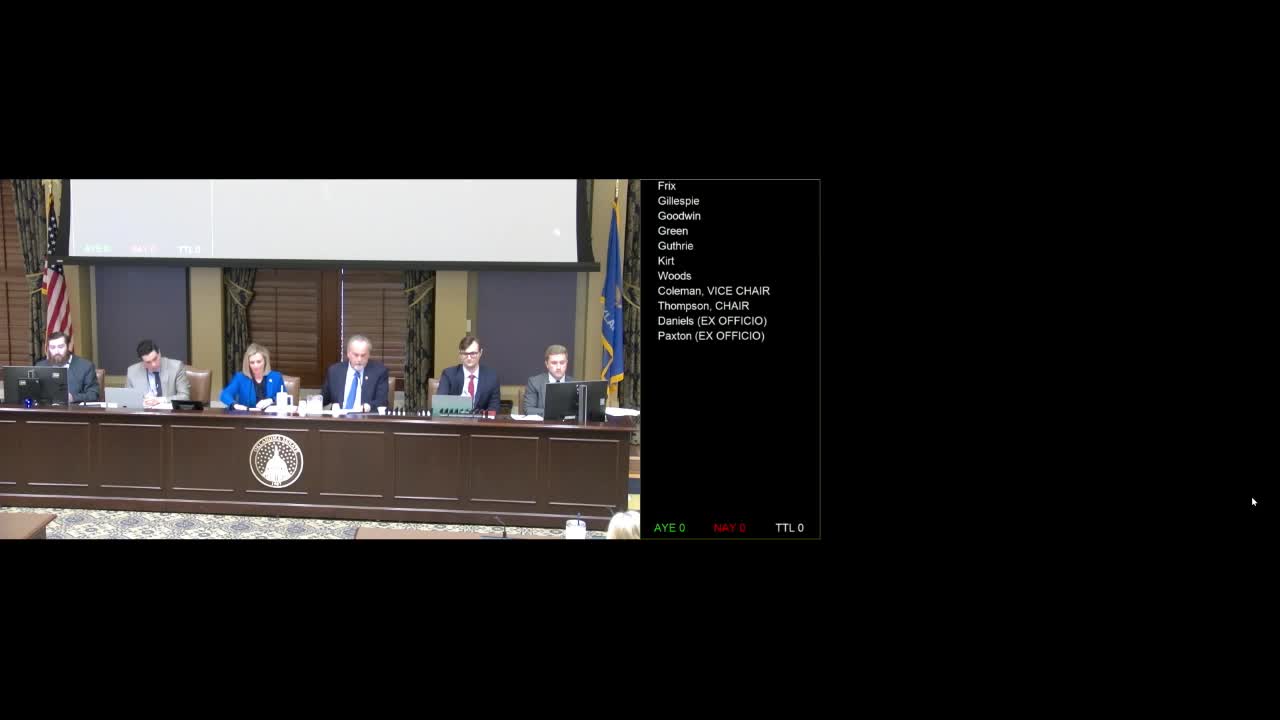
Committee advances amendments to Oklahoma Tourism Development Act; rebate mechanism questioned
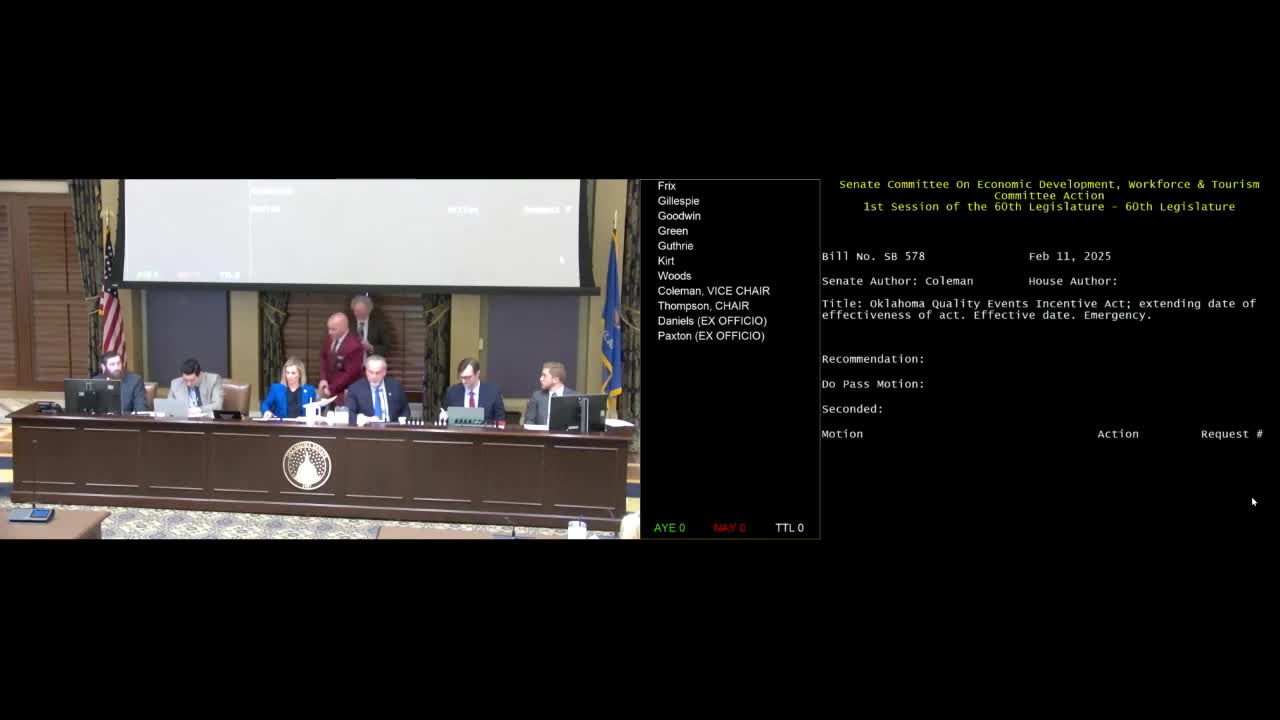
Committee renews and extends the Oklahoma Quality Events Incentive Act to keep events program available
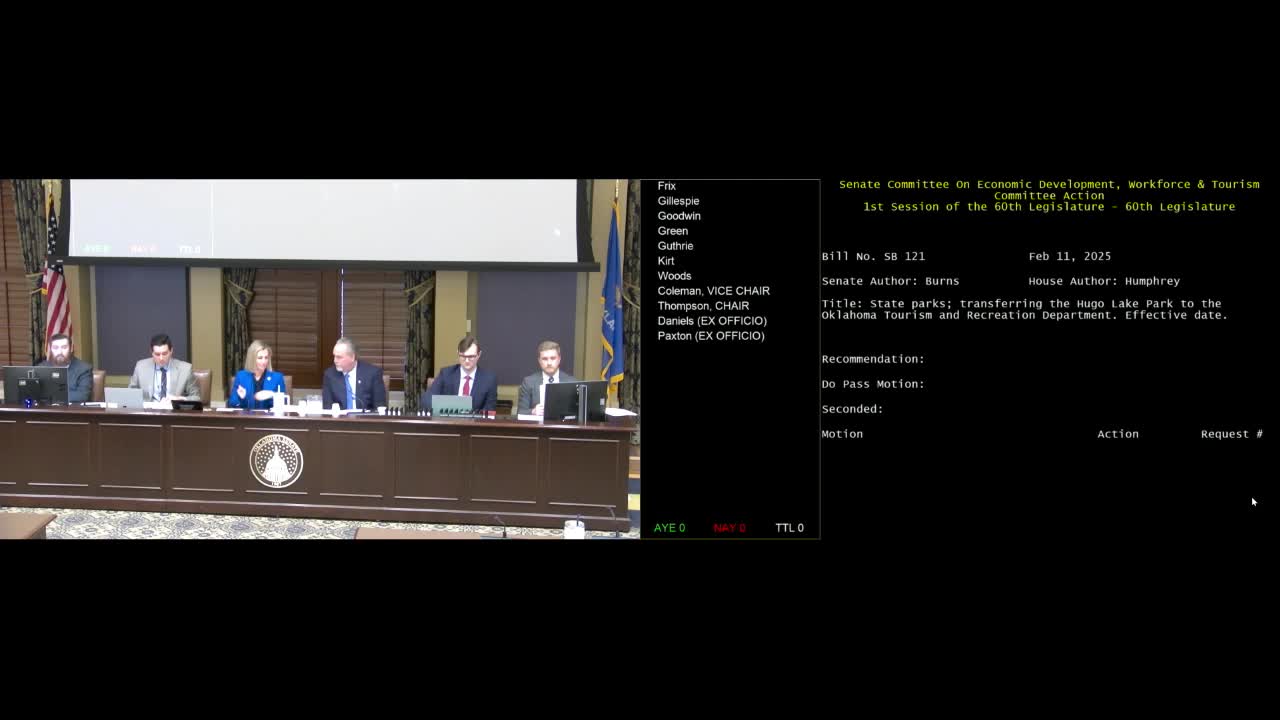
Panel advances bill to transfer Hugo Lake Park to state tourism agency amid questions about deferred maintenance and costs
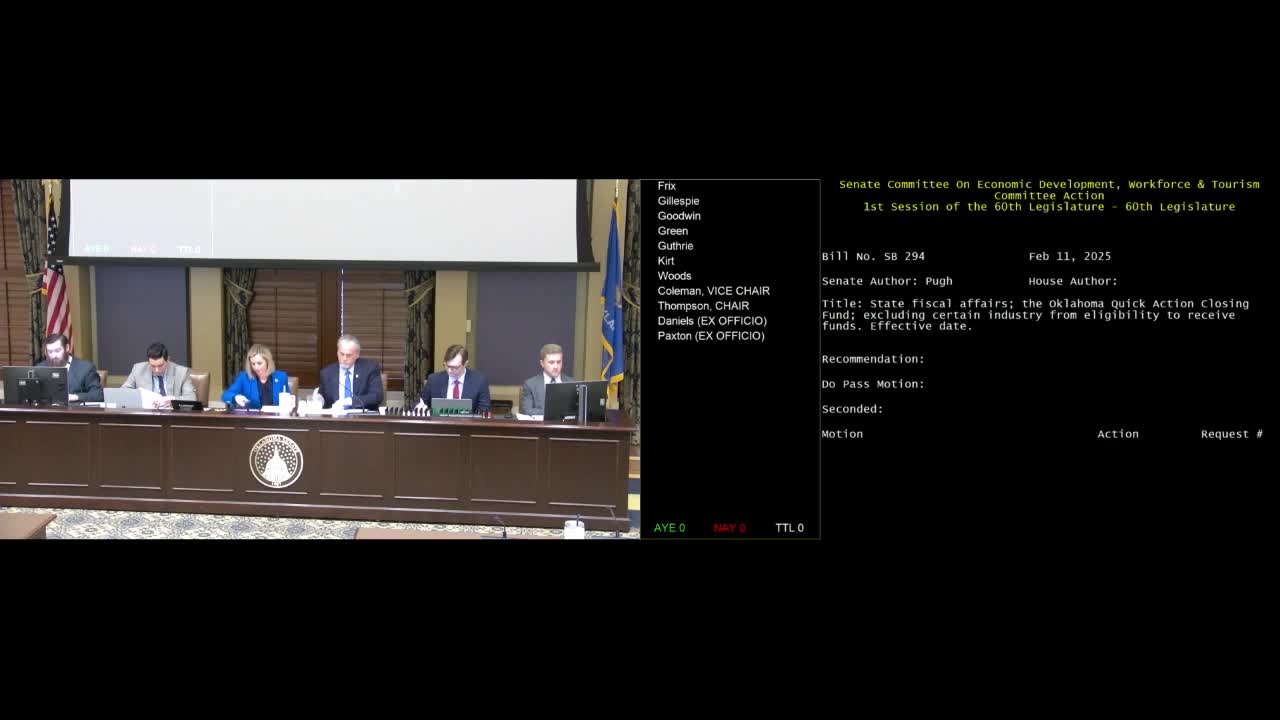
Committee bars quick‑action closing fund from being used for electric vehicle projects
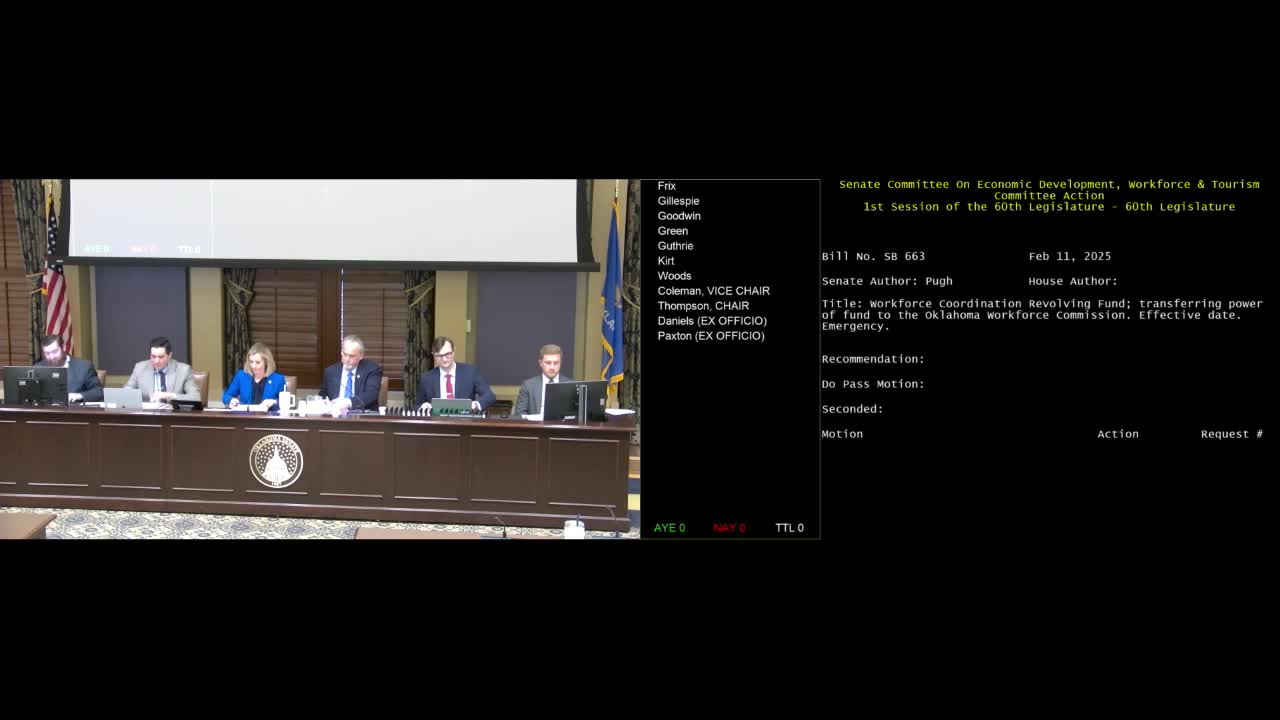
Committee advances bill to transfer $8 million ARPA workforce revolving fund from Commerce to Workforce Commission
